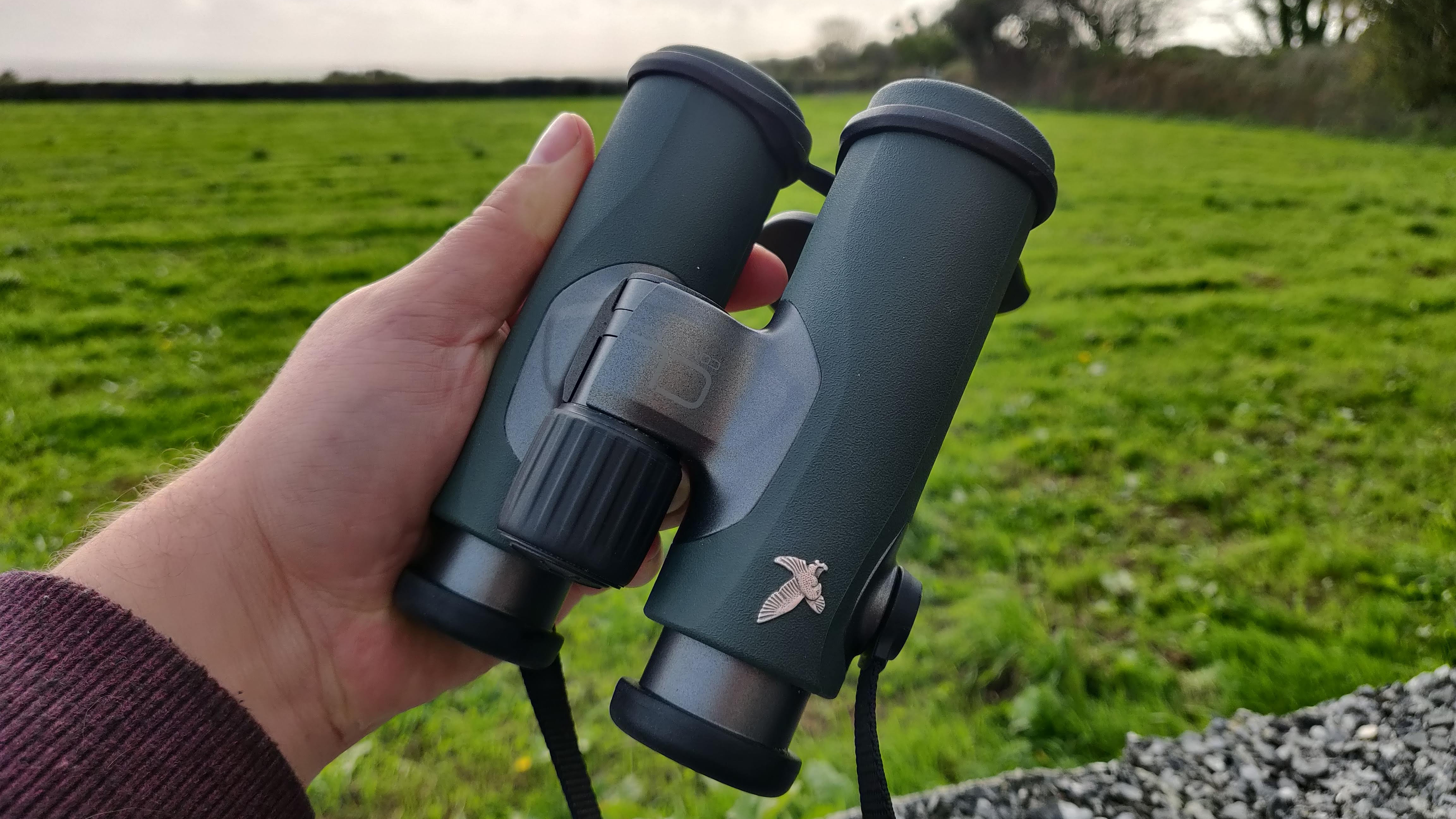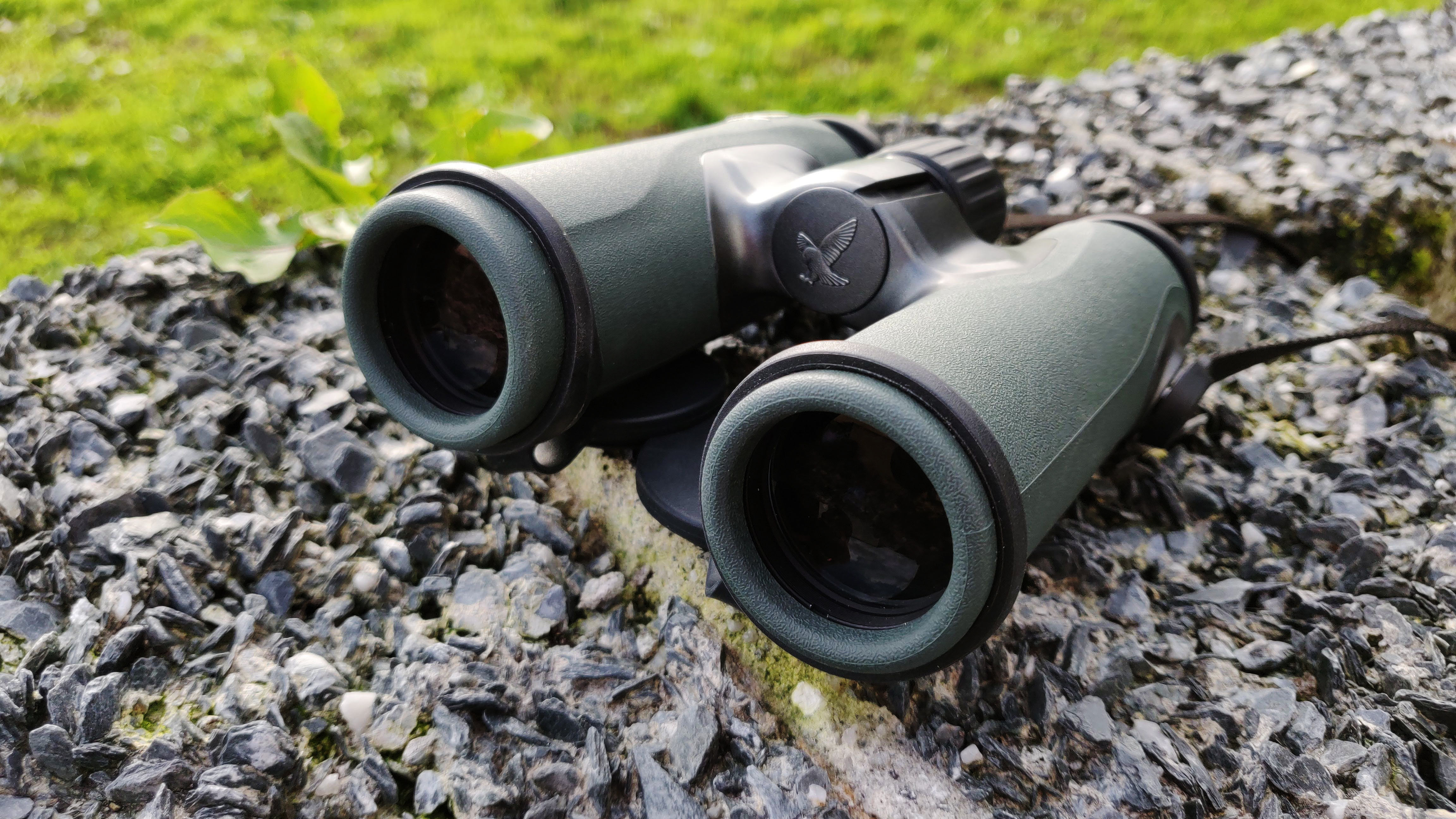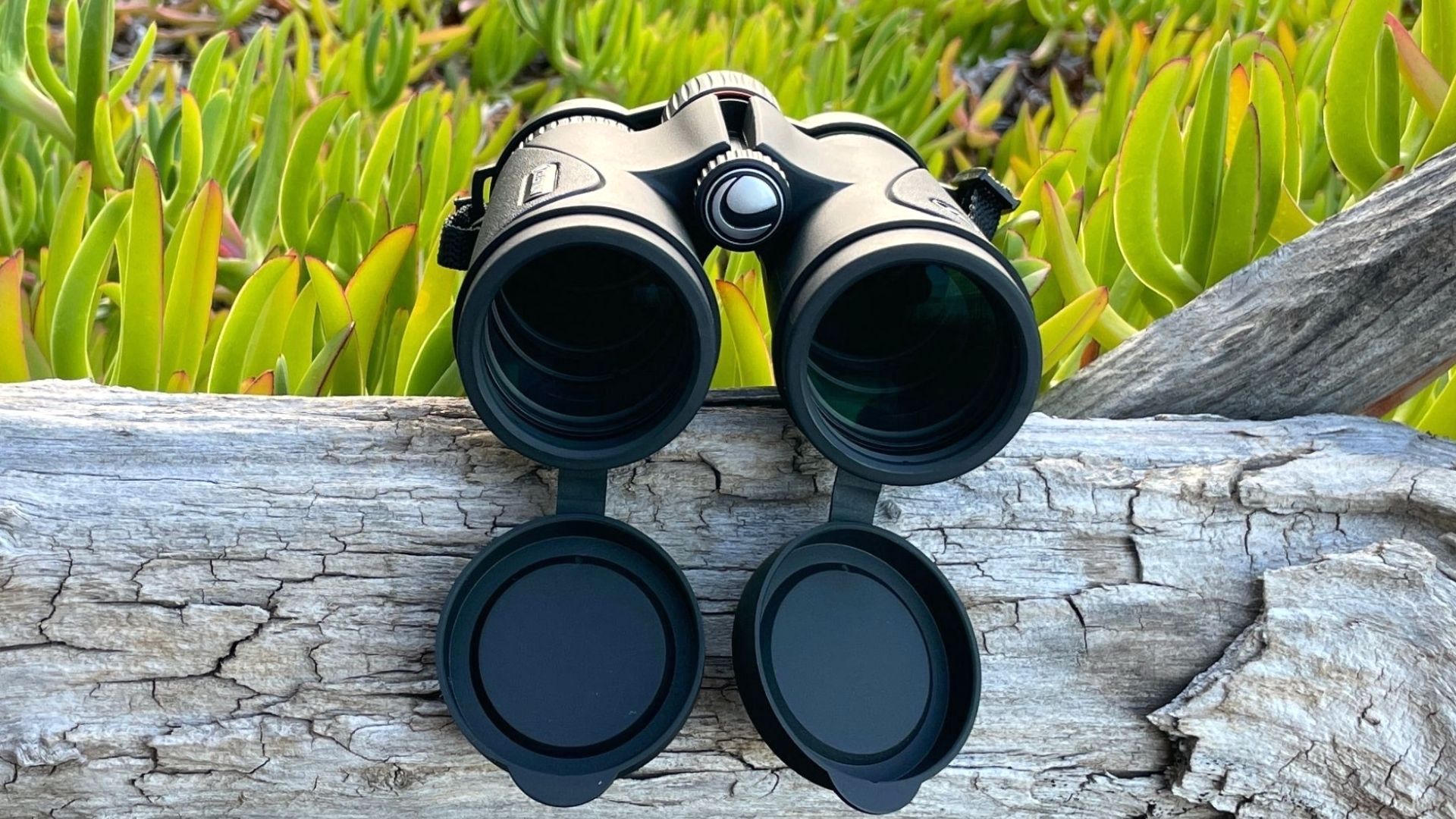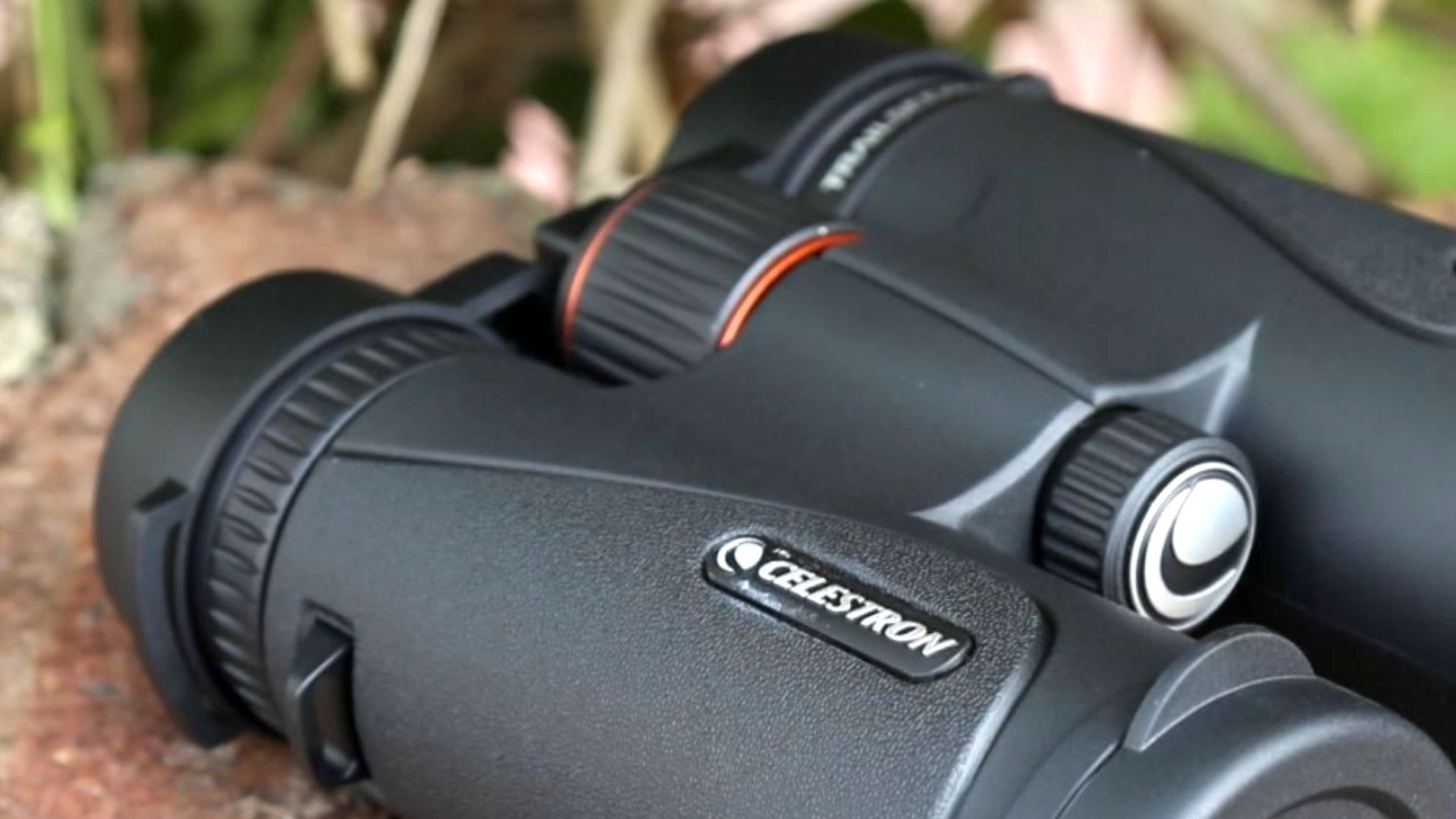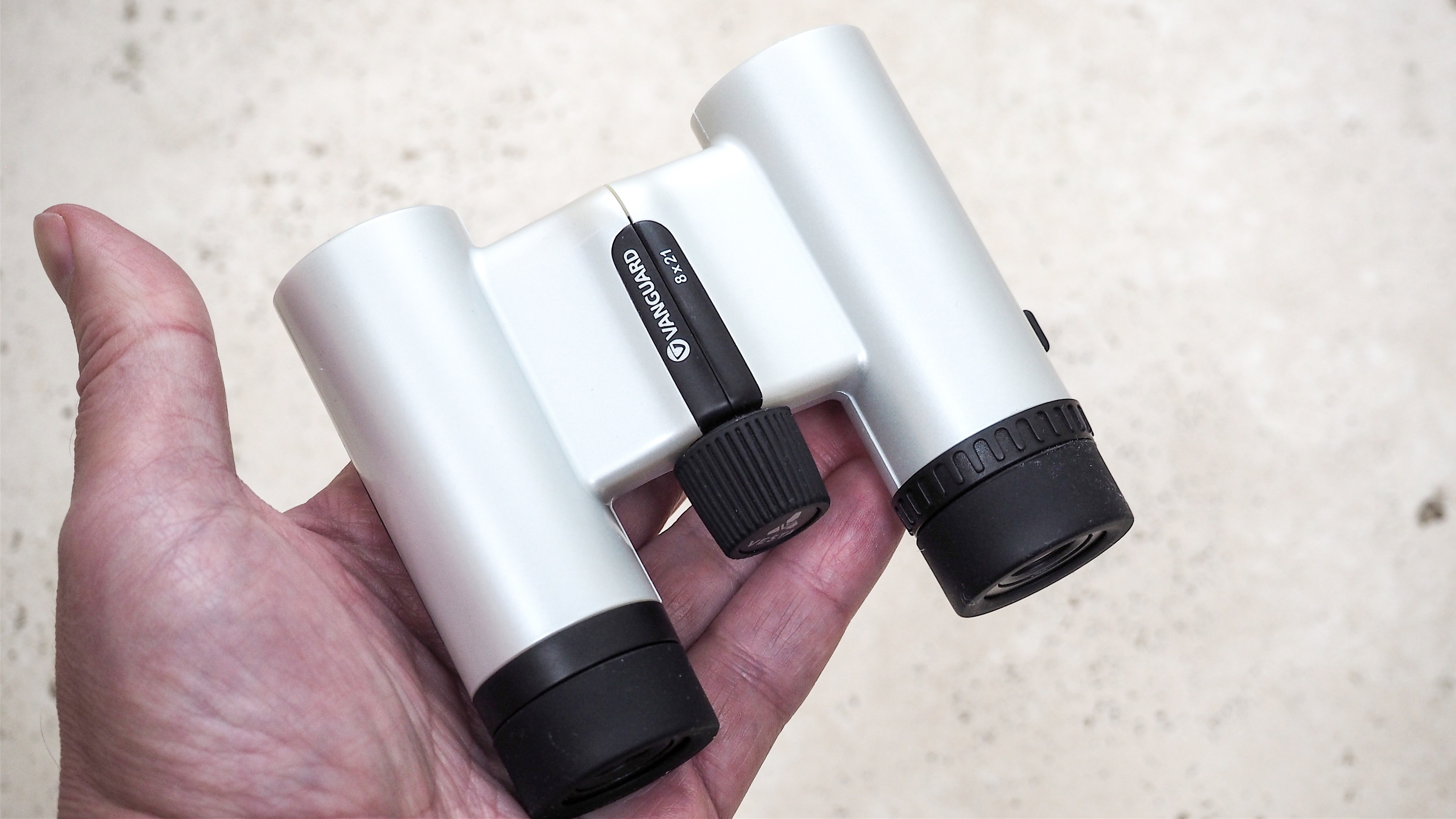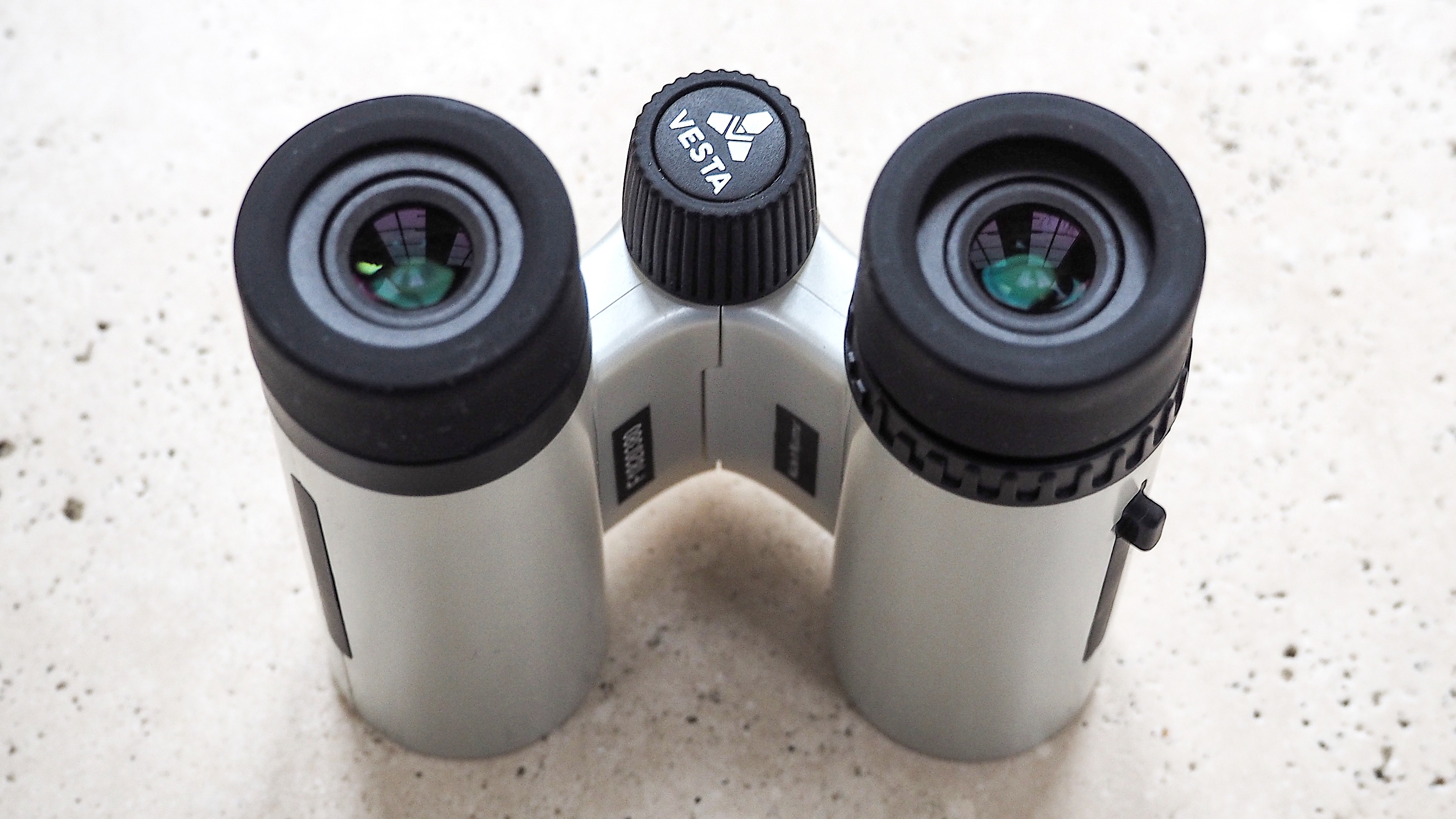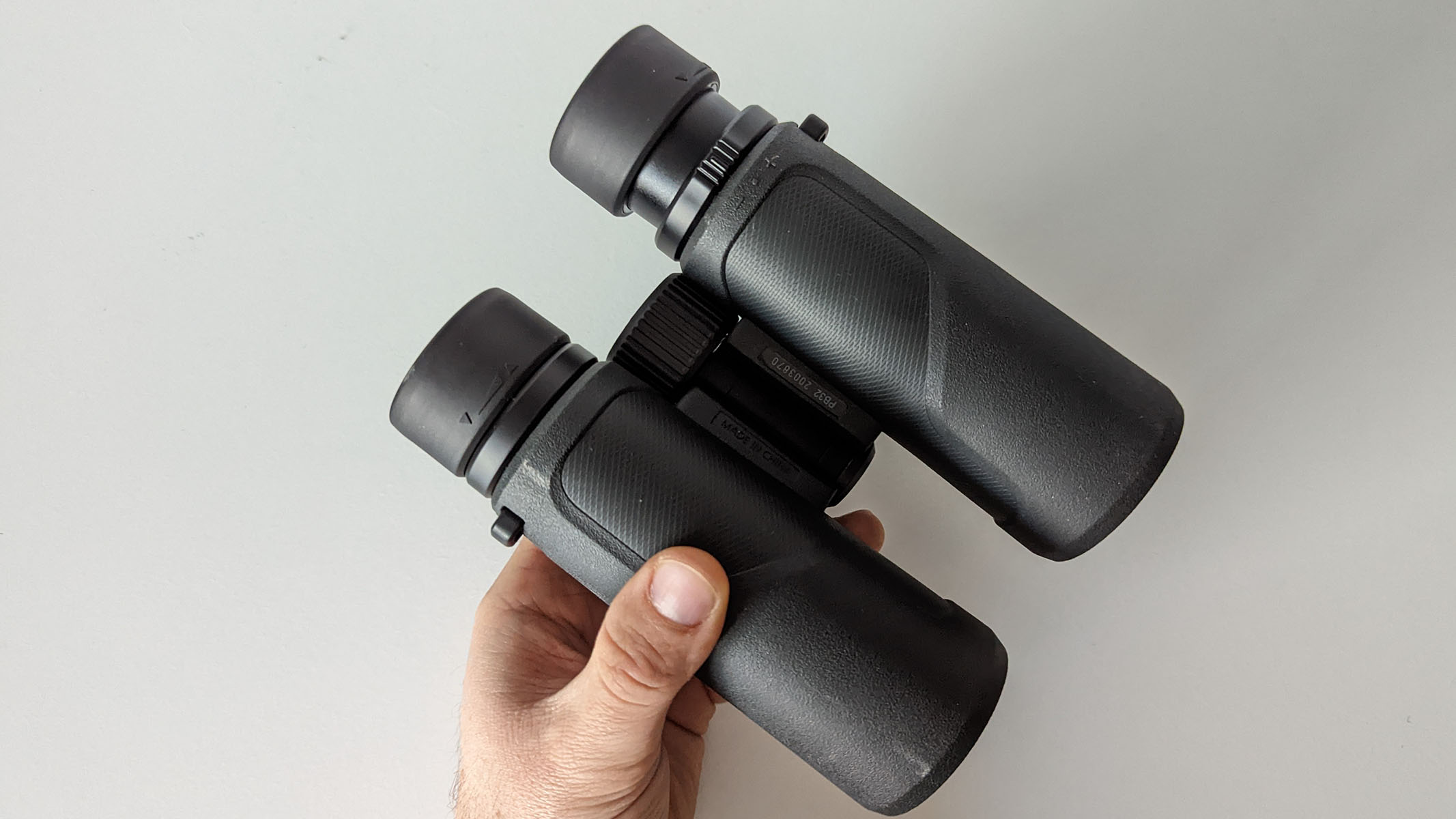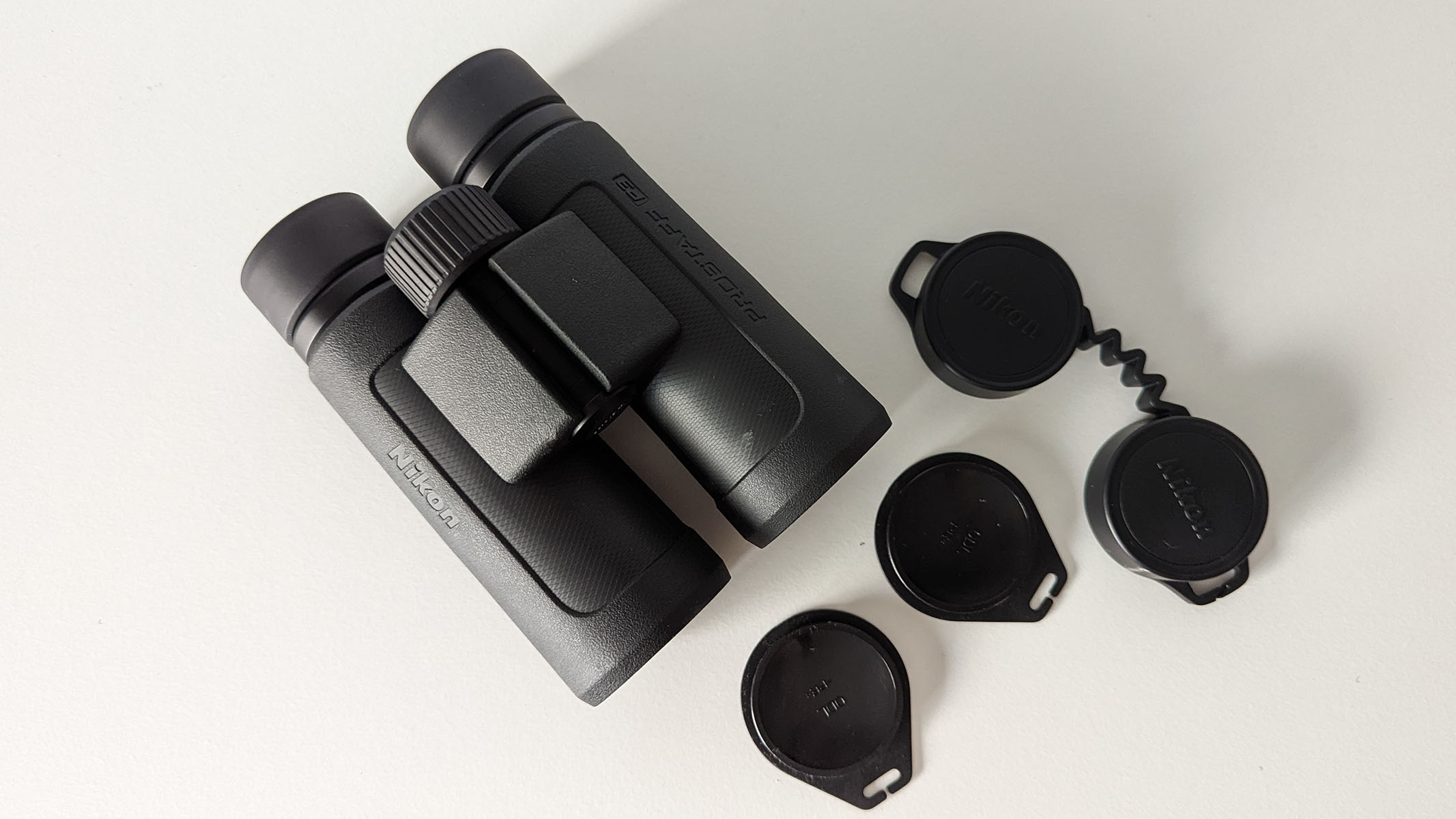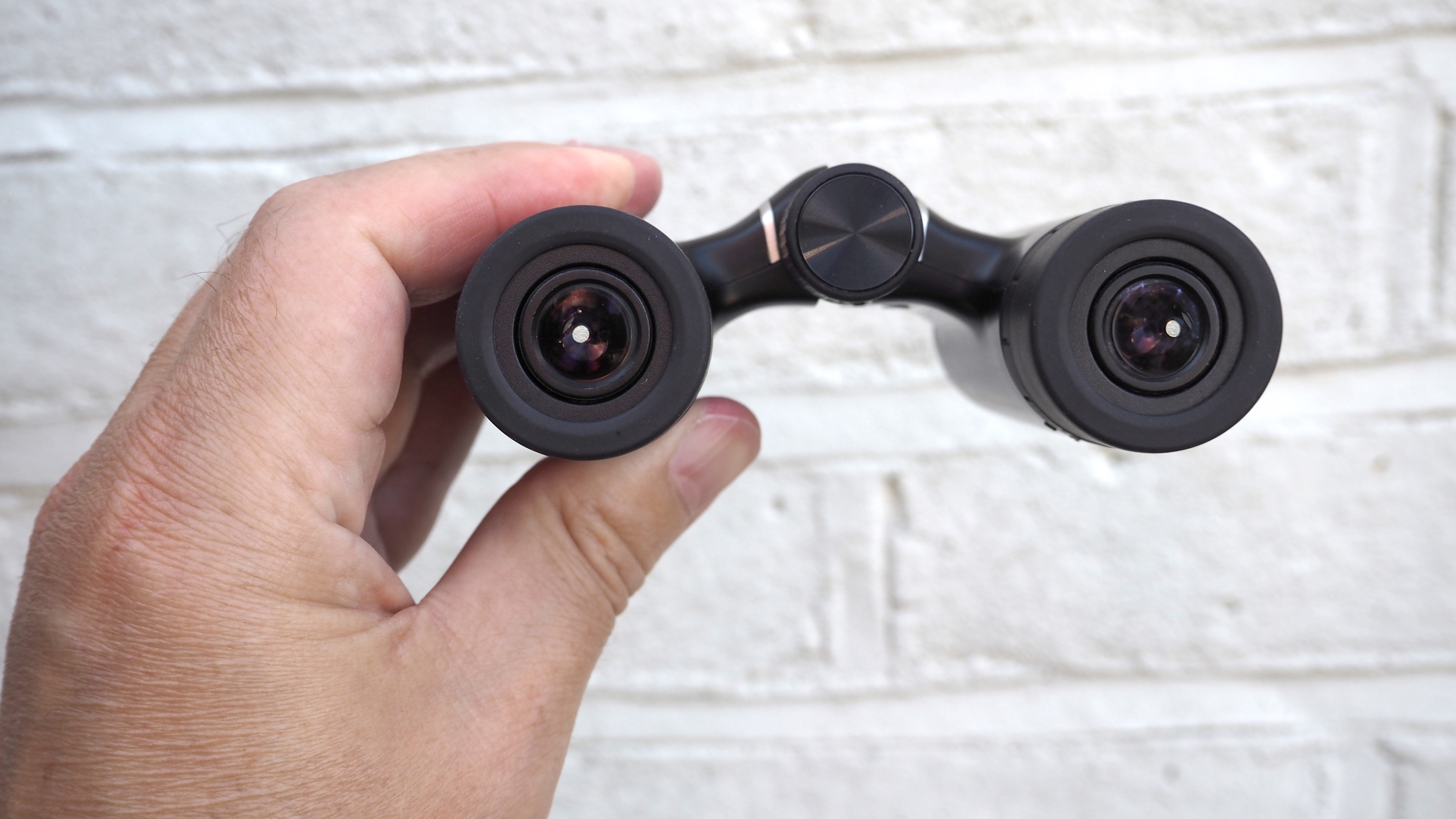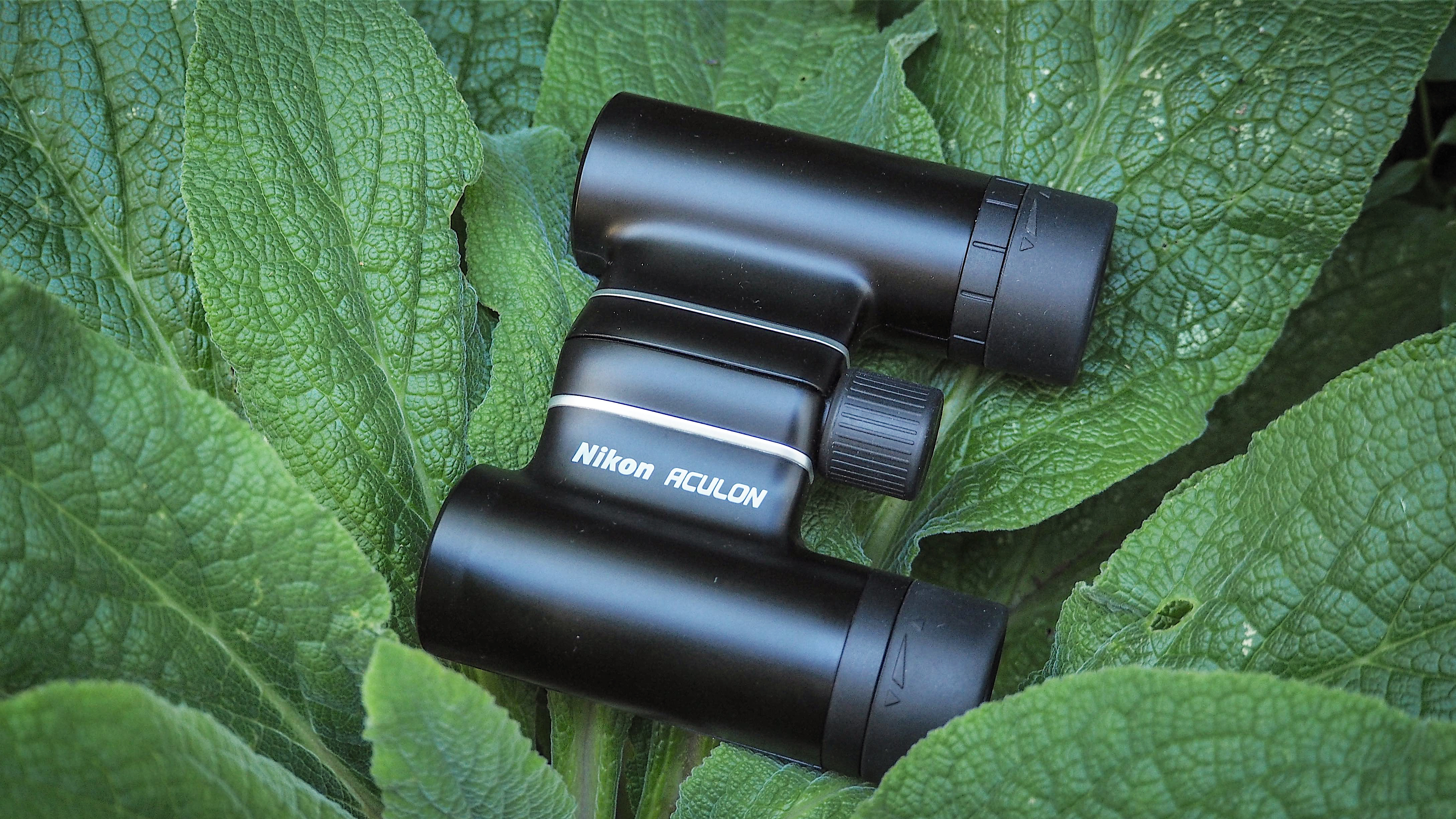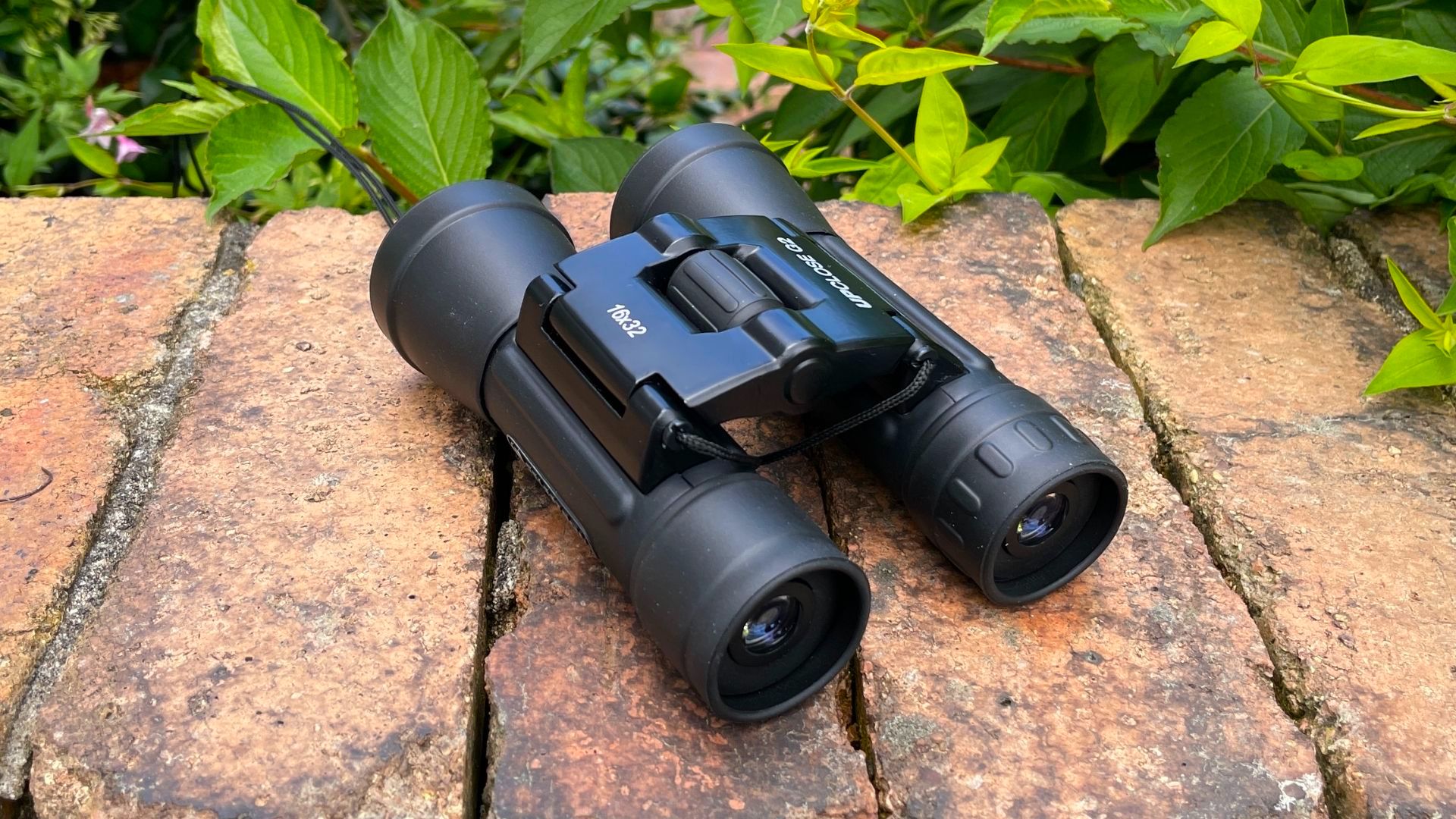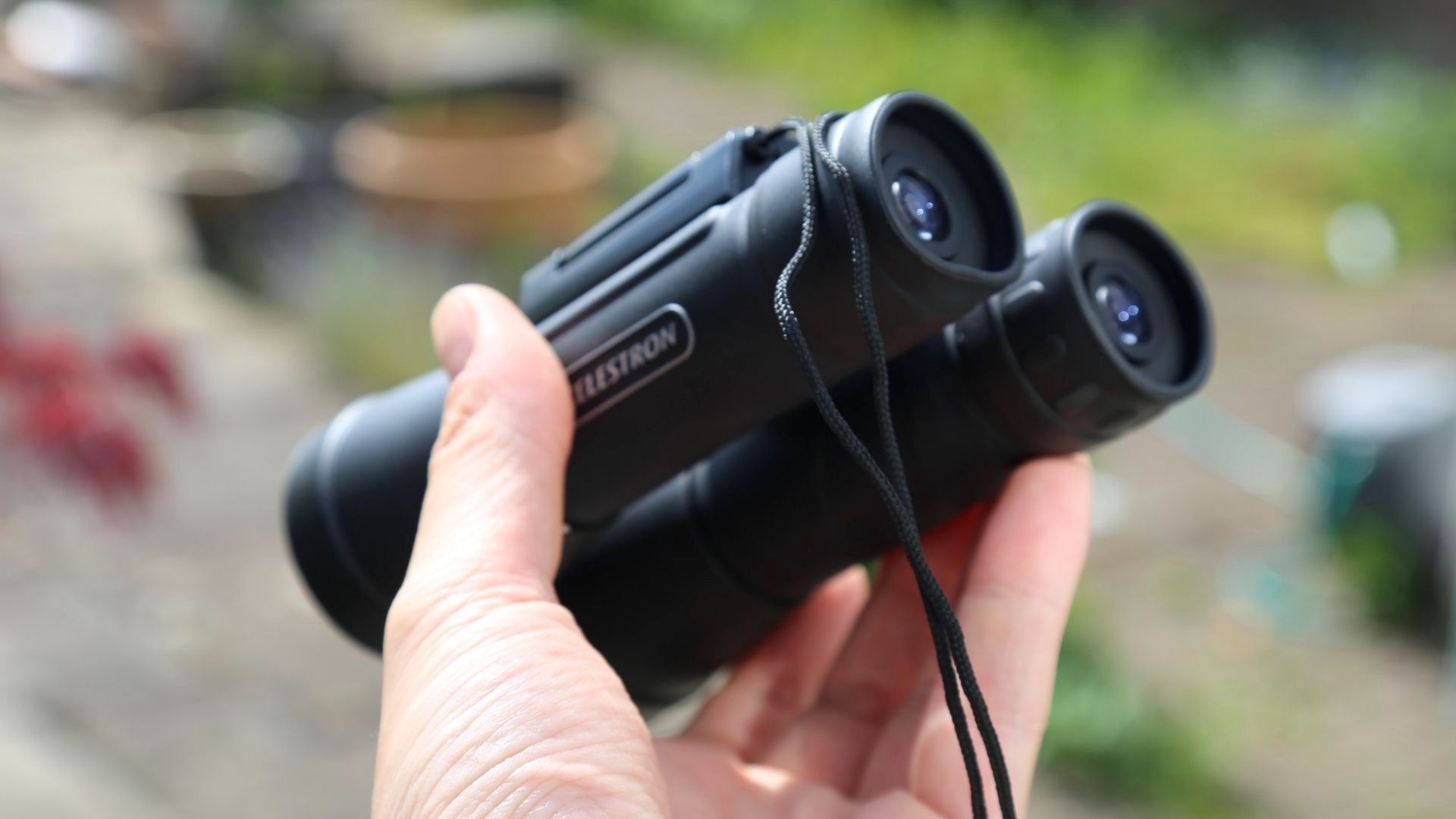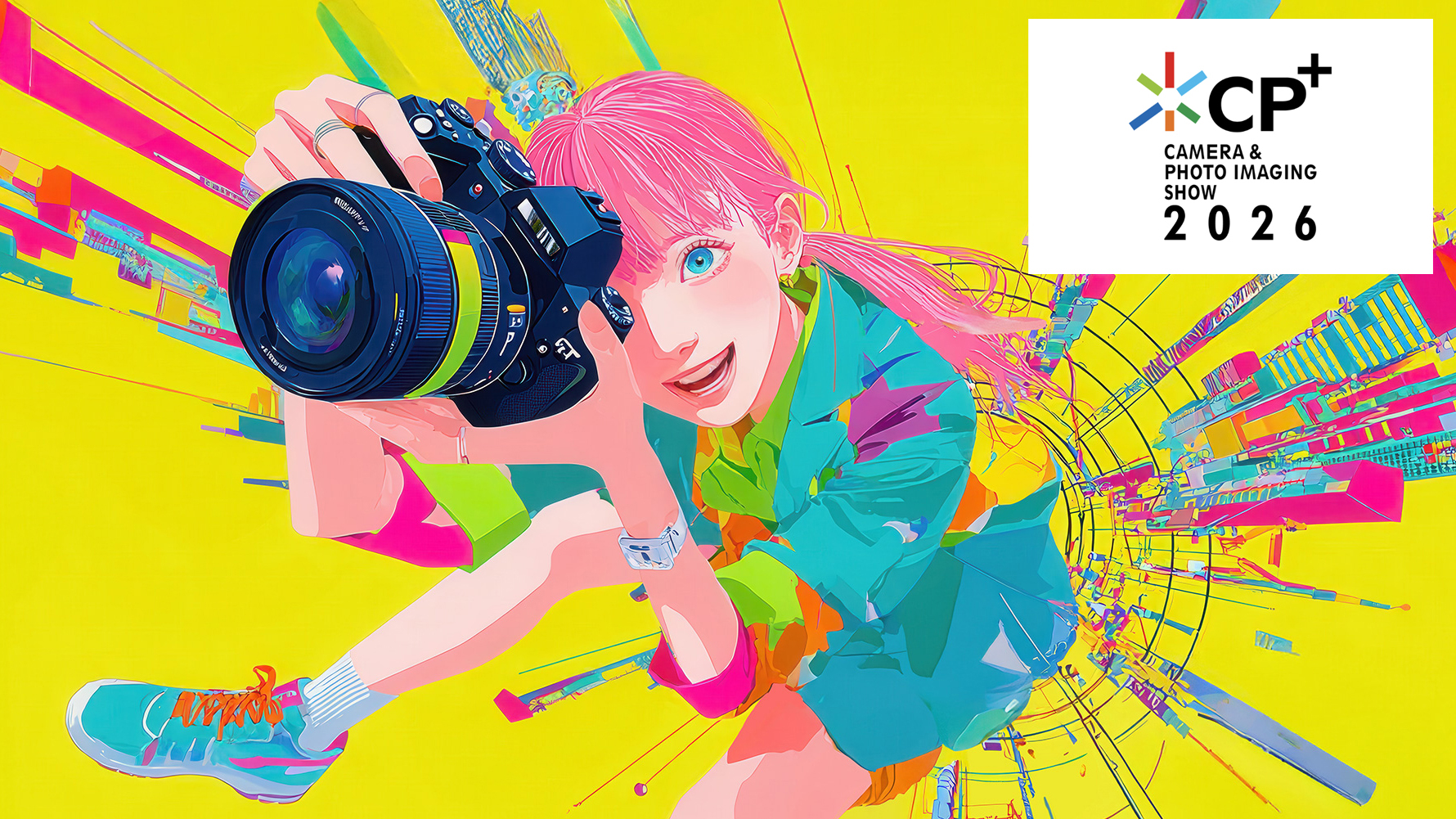Best compact binoculars: roof prism binos that you can take anywhere
Perfect whether you're out for a walk or watching sports, these are the best compact binoculars available today
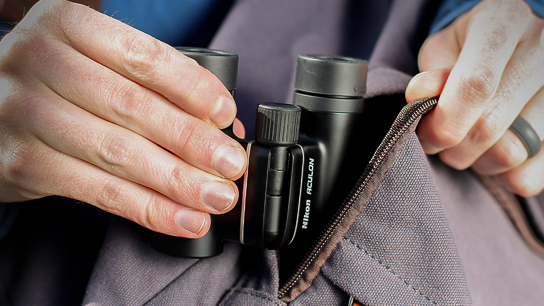
The best camera deals, reviews, product advice, and unmissable photography news, direct to your inbox!
You are now subscribed
Your newsletter sign-up was successful
Compact binoculars are all about convenience, providing a closer look at the world without adding unnecessary weight or bulk. You don’t need a backpack to carry them, and you don’t need to compromise on clarity either.
For travellers, walkers, or anyone who enjoys spotting wildlife and scenery on the go, they’re a simple, lightweight solution that keeps things easy while still delivering sharp views. In the guide below, I’ve compiled the models that stand out the most.
When it comes to choosing the right pair, the numbers matter. You’ll usually see something like 10x25 written on the spec sheet – the first number is magnification, the second is lens size in millimetres. More magnification means you’re pulled closer to the action, but the trade-off is a narrower field of view, which can make tracking moving subjects more of a challenge.
Bigger lenses let in more light, which means brighter images and better performance in low light, though at the cost of added bulk. The trick is to find the right balance – enough reach, enough brightness, but still small and portable enough to suit the way you want to use them.
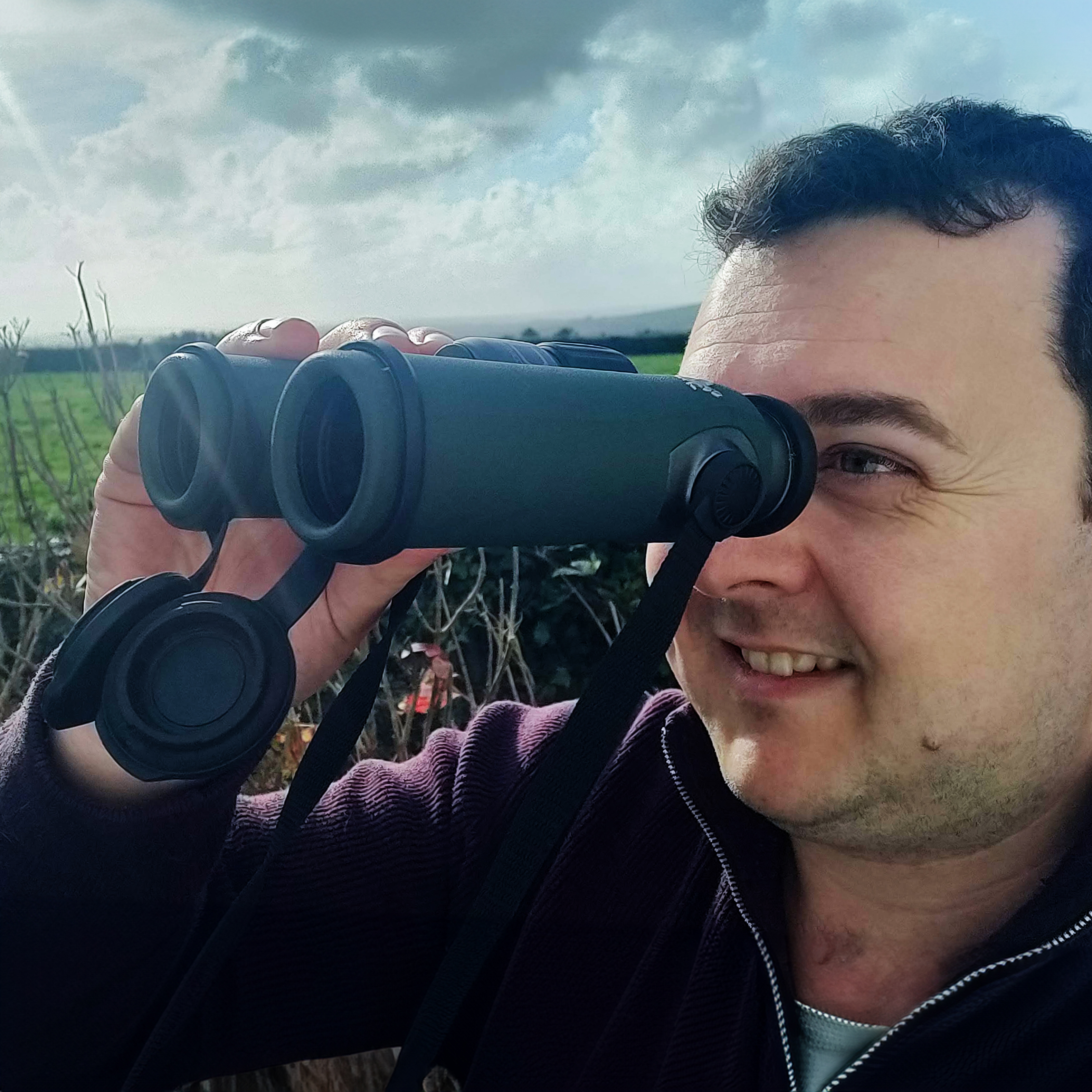
Alongside his work as a professional sports photographer, he’s a passionate country sportsman, often found out on the shooting field, sailing the coastline, or immersed in outdoor pursuits. Rarely without a pair of binoculars, a monocular, or a spotting scope, he’s always ready to take in the world from a closer perspective.
Our quick list
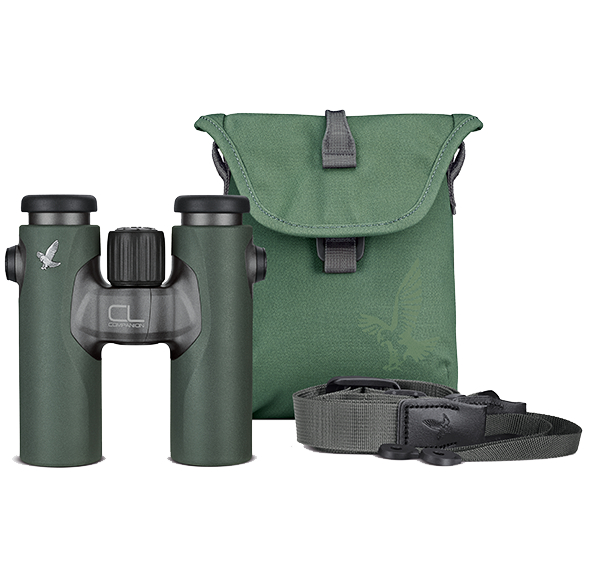
If price isn't a concern and you want the best optical quality on the market to date, then these compact binoculars are just the thing.
Read more below
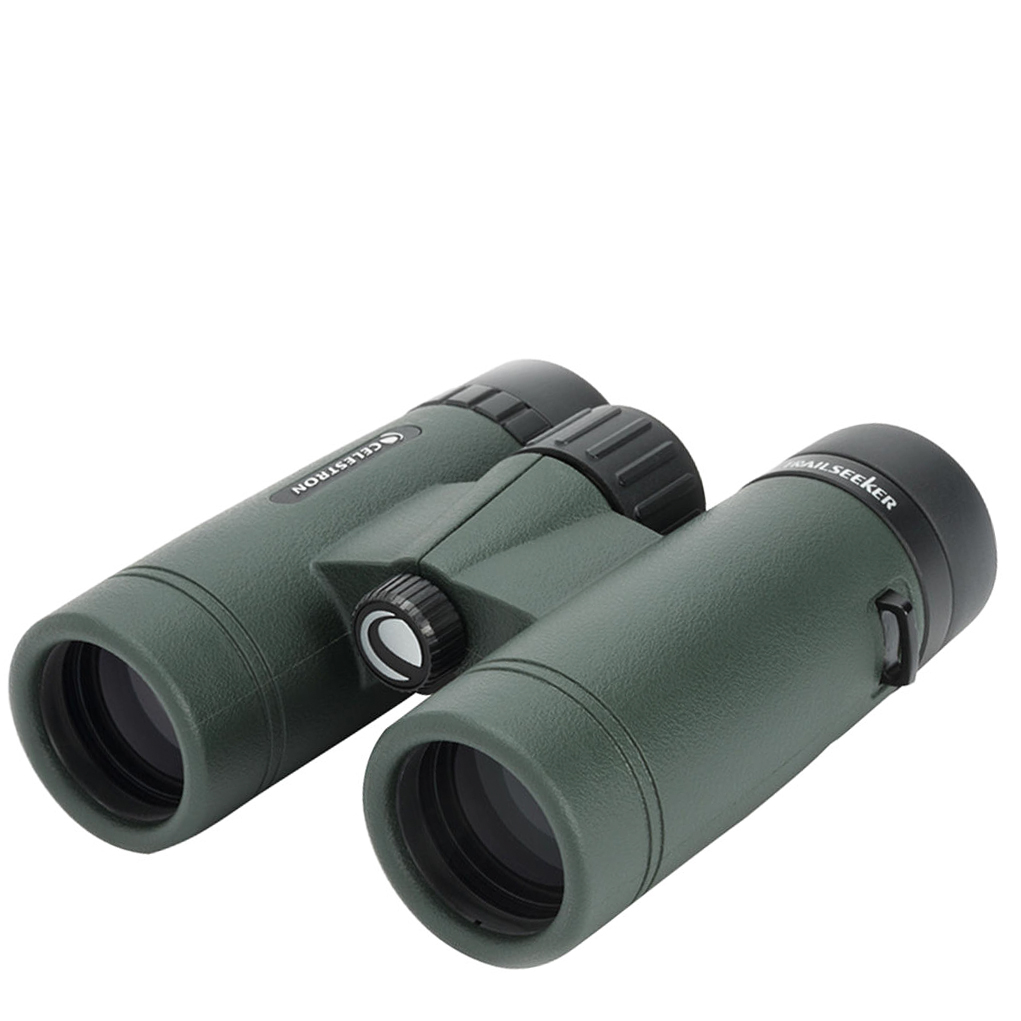
This pair offers outstanding image quality for the price, and has the perfect combination of magnification and brightness for bird-watching in any lighting condition.
Read more below
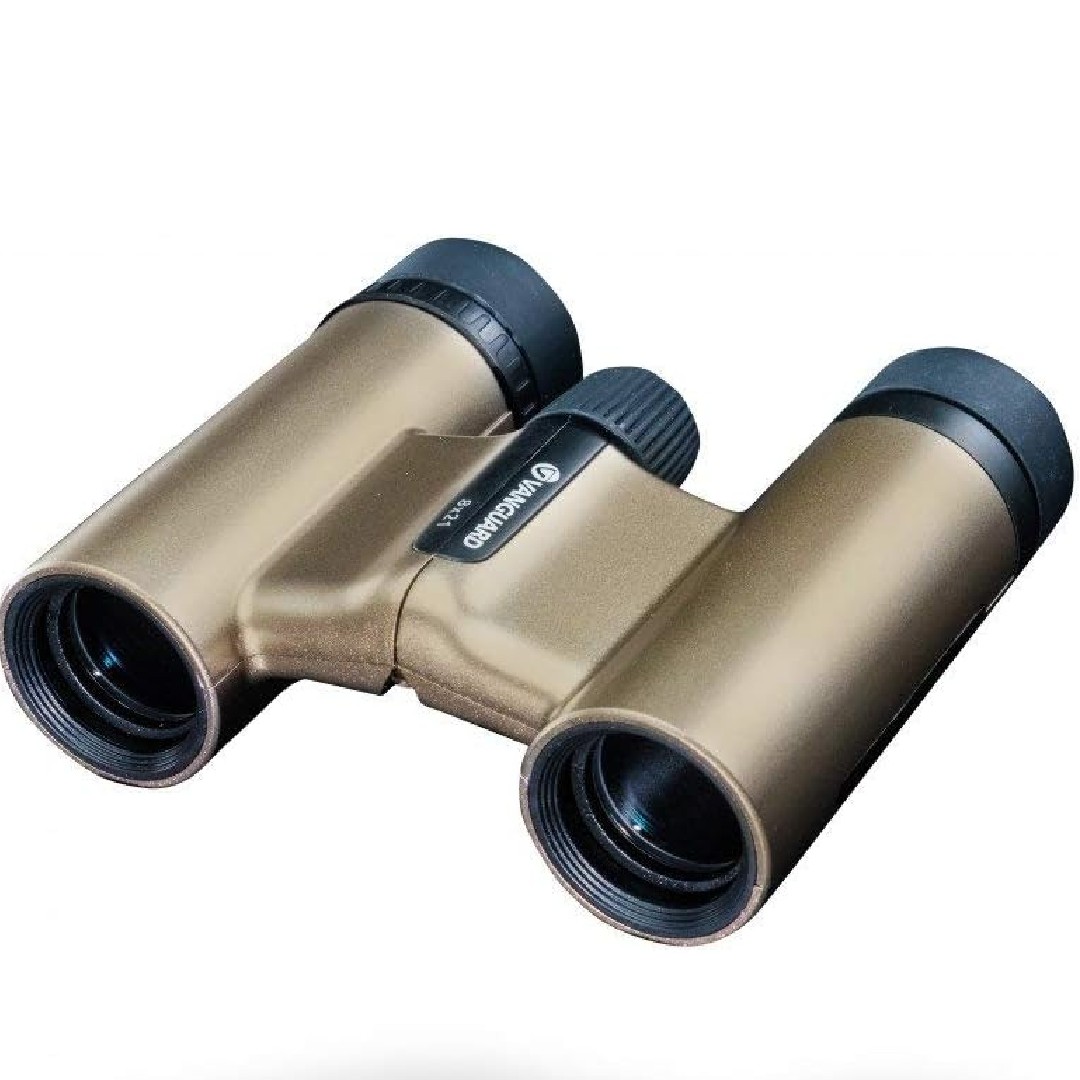
Looking for a point-and-view for a very low cost? These compact binoculars are basic and performance in low light is variable, but for such a low price they offer great value for money.
Read more below
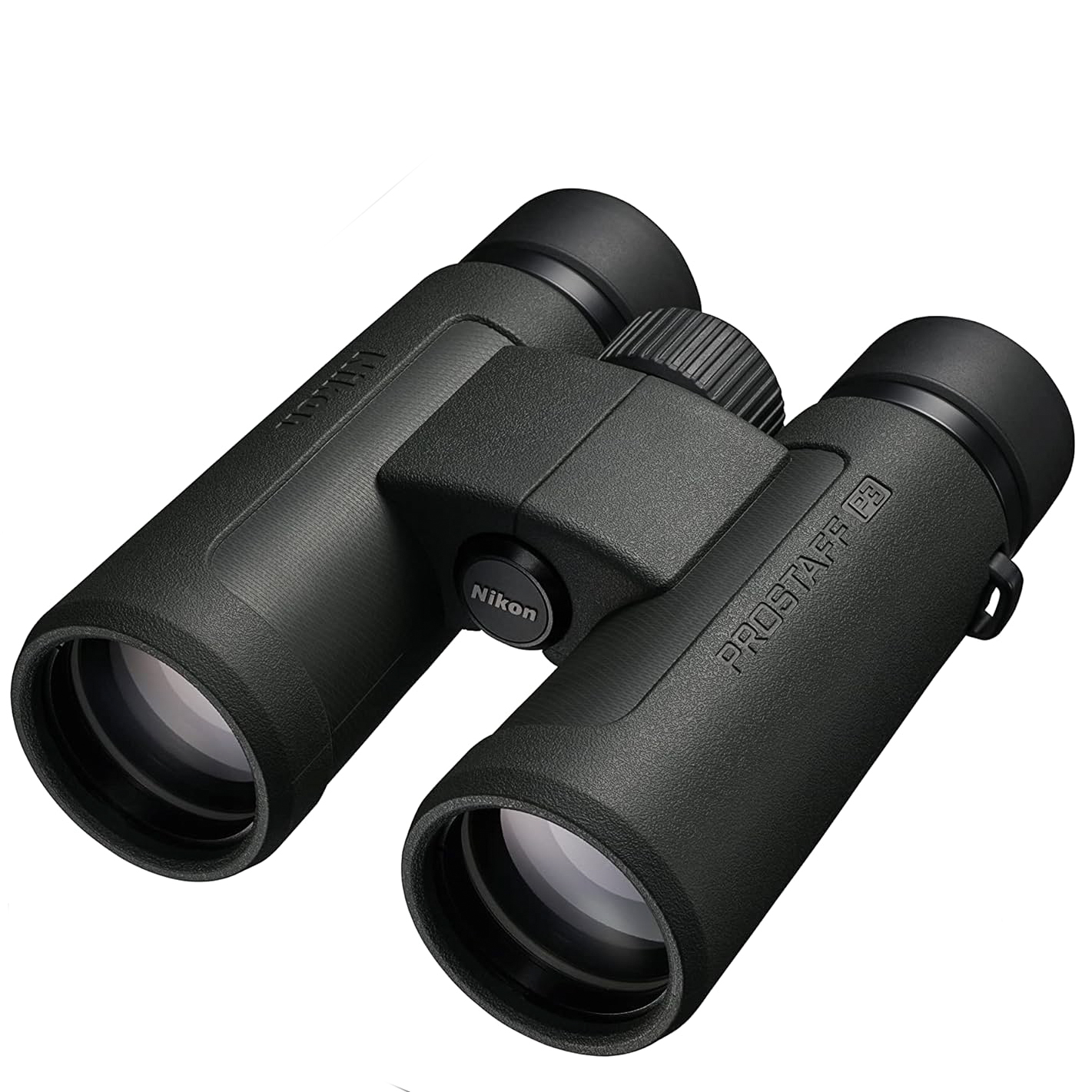
These are remarkably light for a pair of 8x42 binoculars - and are rubberized to ensure they take the knocks when on your travels. They are remarkably good value too.
Read more below
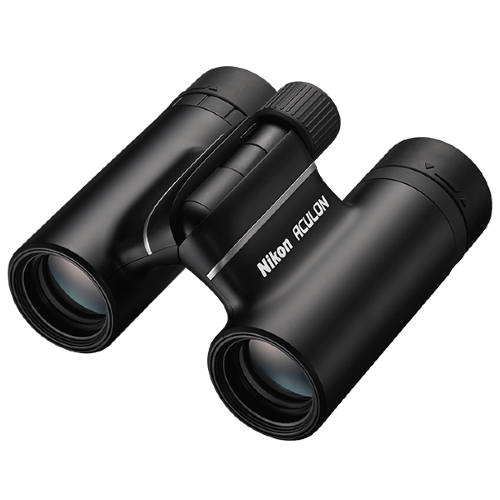
An inexpensive and portable offering for backpackers and hikers alike, this compact pair of binoculars would also be suitable for concert and theatre-goers, as well as sports fans.
Read more below
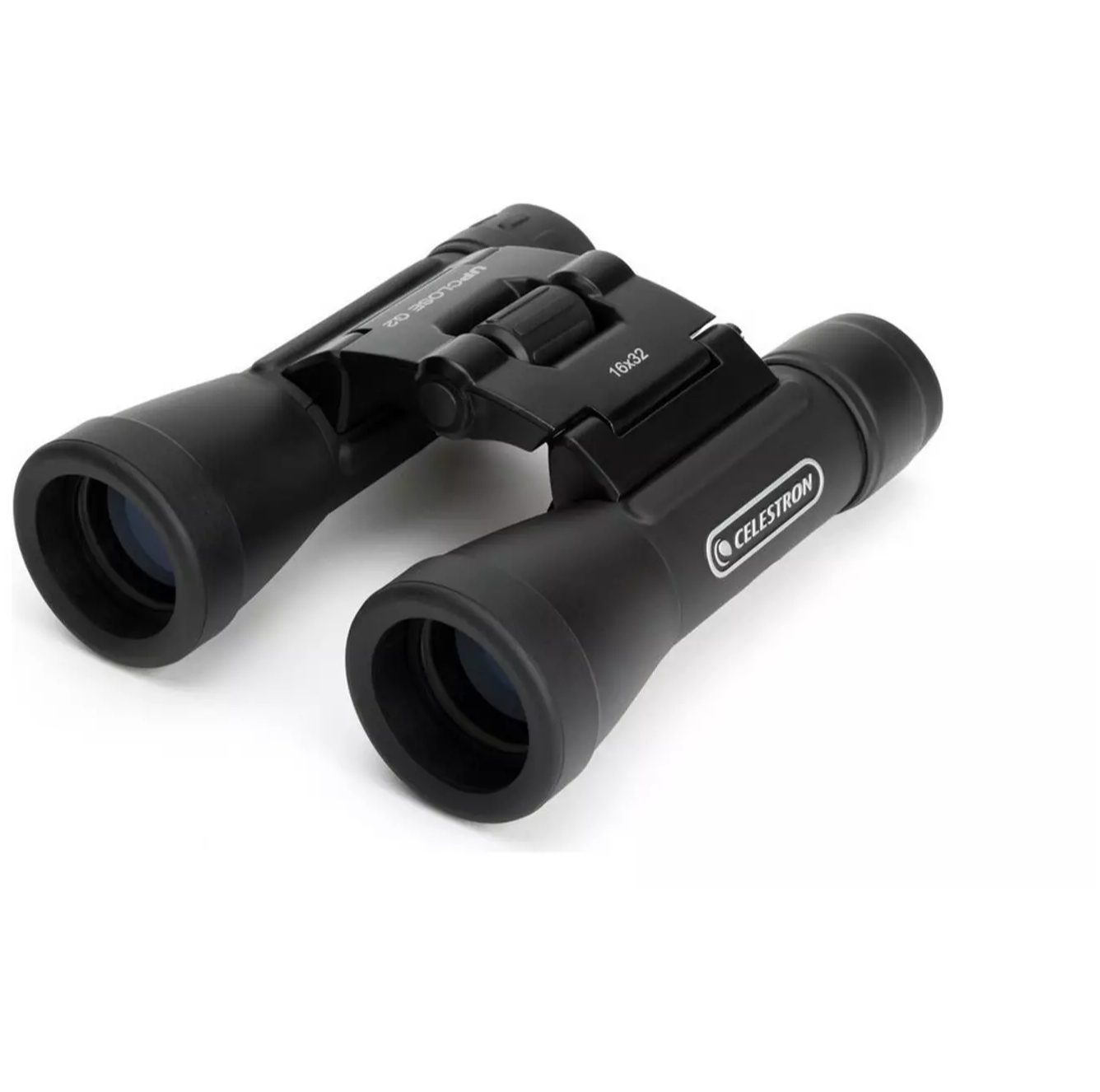
Incredibly affordable and with rugged build quality, these 16x32 binoculars may lack ultimate brightness, clarity, and contrast yet they help get impressive close-ups.
Read more below
Best compact binoculars
Why you can trust Digital Camera World
Best overall
Specifications
Reasons to buy
Reasons to avoid
✅ You want the best: Swarovski is known for its expertise in optics and these binos are the best in the business.
✅ You want great build quality: Built to last and act as an investment Swarovski has made these binos with the best quality materials around.
❌ You're on a budget: If you're counting the pennies these are not the best option for you
❌ Accessories aren't the best: Unfortunately, the accessories don't match the high price
If price isn't a concern and you want the best optical quality on the market to date, then these pair of Swarovski CL Companion 8x30 compact binoculars are just the thing to let you observe wildlife from as close to 3 meters all the way up to 132 meters with crystal clear vision.
If you are looking for the best optical quality binoculars that are also lightweight for carrying long distances, and that let you see your observations from a far distance, these are possibly the best compact binoculars you can buy to date.
With the lightweight construction of the CL Companion binoculars and the impeccable build quality, you can be sure your investment will withstand the test of time, which is what would expect as these are far from cheap. But you get what you pay for and the optical quality of these binoculars is possibly the best on the market.
Read our full Swarovski CL Companion 10x30 review for more details.
| Header Cell - Column 0 | Notes | Score |
|---|---|---|
Optics | With crystal clear optics, stunning clarity these are the best in the business | 5 / 5 |
Build & handling | Built like a tank, these binos can withstand the test of time, and ultimate weather conditions | 5 / 5 |
Value | These are luxury binos, so come with a hefty price take, but you get what you pay for! | 4 / 5 |
Final thoughts
The Swarovski CL Companion 10x30 is a masterclass in compact elegance, offering the kind of refined optical performance that has become synonymous with the Swarovski name. Lightweight, beautifully balanced, and impeccably built, it’s the binocular you take when you refuse to compromise - whether you're tracking birds at dawn or glassing a distant ridgeline.
The 10x30 configuration strikes a sweet spot between reach and portability, while Swarovski’s signature coatings deliver crisp, colour-true images even in challenging light. Slim, tactile, and effortlessly premium, the CL Companion is designed not just to perform, but to delight in the hand and in the field. For those who value craftsmanship and clarity in equal measure, it’s a true investment piece.
Best compact binoculars for birding
Specifications
Reasons to buy
Reasons to avoid
✅ You want a great all-rounder: Perfect for observing birds, but can also be used for many other subjects.
✅ You want compact: Great compact size to carry around all day or have in your pocket.
❌ You're looking for a good deal: While these are not the most expensive in the market they are still a hefty price
An 8x42 pair of binoculars is a great basic specification for birdwatching. That gives you enough magnification for getting in close, without the binoculars becoming too hard to hold steady. The 42mm diameter lenses, meanwhile, mean that the image is bright enough to make them suitable for use on dull days and at dusk.
On testing these Celestron binoculars, we found them to give exceptional image quality for the price. You can pay more to get these with ED (extra-low dispersion lenses), but in our test we think that the basic Trailfinders are brilliant enough not to warrant paying the extra.
We loved that these are waterproofed, and come supplied with a harness (a binocular harness is otherwise an extra investment for birdwatchers). Overall, these are the perfect combination of portability, performance, and affordability.
Read our full Celestron 8x42 TrailSeeker binoculars review for more details
| Header Cell - Column 0 | Notes | Score |
|---|---|---|
Optics | Perfect for bird watching, the optics give a clear and defined image perfect for making important observations | 5 / 5 |
Build & handling | Compact, lightweight, and waterproof | 5 / 5 |
Value | For the price they are highly regarded | 4 / 5 |
Final thoughts
The Celestron TrailSeeker 8x42 punches well above its weight, offering impressive optical performance and robust build quality at a price that feels almost too good to be true. With fully multi-coated lenses, BaK-4 phase-coated prisms, and a wide field of view, it delivers bright, sharp images that make it a superb all-rounder for birding, wildlife, and general outdoor use.
The magnesium alloy body keeps things lightweight yet durable, while features like twist-up eyecups and a locking diopter add a touch of refinement rarely seen at this level. For those wanting reliable, well-balanced binoculars without the premium price tag, the TrailSeeker 8x42 is a smart, accessible choice that doesn’t compromise where it counts.
Best budget
Specifications
Reasons to buy
Reasons to avoid
✅ You're on a budget: Perfect for those wanting good quality on a limited budget.
✅ You want lightweight: At just 195g these are perfect for having in your pocket whenever you need them.
❌ You want optical quality: these are not the sharpest binos out there
Short on funds? These lovely binoculars are pocket friendly in terms of both size and price. Weighing just 195g and fitting in your palm, they're lovely and portable. As you'd expect from the price these binoculars are basic; simply point-and-view. But our reviewer found they did a good job in situations like bringing athletes closer from our seat faraway in the stands, or performers’ faces more clearly into focus at a concert.
Overall, performance veers between adequate and good depending on available light, but it broadly feels like you're getting decent value for money.
Read our Vanguard Vesta 8x21 compact binoculars review for more details.
| Header Cell - Column 0 | Notes | Score |
|---|---|---|
Optics | Well this is the budget option its optics are good for the price range, but don't expect amazing clarity | 3.5 / 5 |
Build & handling | Extremely lightweight with a compact design these are a great pair of binos for the price | 4 / 5 |
Value | While these are the best budget offering, teir performance exceeds their value | 5 / 5 |
Final thoughts
The Vanguard Vesta 8x21 is a pocket-sized performer built for spontaneity—perfect for travel, casual nature walks, or slipping into a jacket pocket on city breaks. Weighing just 195g, it’s remarkably compact without feeling flimsy, and despite the small lenses, it delivers surprisingly crisp, bright views for its class.
The 8x magnification offers just the right amount of reach for everyday use, while the simple, user-friendly design makes it ideal for beginners or those after a grab-and-go option. If you’re after a compact binocular that’s light on your shoulders and your wallet, the Vesta 8x21 is a well-made, fuss-free choice that outperforms expectations.
Best compact binoculars for travel
Specifications
Reasons to buy
Reasons to avoid
✅ You love to travel: With amazing lenses and a compact form factor, these binos are perfect for travel.
✅ You want thought construction: With a rubberized outer shell these are great to use in all weather conditions
❌ You want high-quality lenses: On testing, we did see some chromatic aberration which was slightly distracting.
What you want from a pair of travel binoculars may well depend on where you are going, and what you expect to see. But we think that you will want decent magnification and decent image brightness - so you can make the most of them in a variety of conditions. It is also not worth investing very heavily, perhaps, just in case they go missing.
For this reason, we pick this pair of Nikon Prostaff P3 8x42 binoculars - which we think are a really great buy. The 8x42 spec means they are perfect for wildlife watching - and can be used in lowlight, so you are not limited to using them in bright daylight.
The rubberized exterior means that they can be packed in your suitcase without you worrying about how they will fare being thrown around by baggage handlers.
In our tests, we did observe some chromatic aberration - but for the price this is perfectly understandable, and is more than acceptable for the casual holiday maker.
Read our full Nikon Prostaff P3 8x42 review for more details
| Header Cell - Column 0 | Notes | Score |
|---|---|---|
Optics | Bright image with great quality | 4 / 5 |
Build & handling | With a rubberized finish and light constriction these binos are perfect for travel | 4 / 5 |
Value | For the price, these are the perfect travel companion | 4 / 5 |
Final thoughts
The Nikon Prostaff P3 8x42 is a solid, dependable choice for those who want quality optics without stepping into premium territory. With multilayer-coated lenses and a wide, steady field of view, it delivers bright, sharp images that suit everything from woodland birdwatching to weekend hikes.
The 8x42 configuration offers an ideal balance of magnification and light-gathering, while the lightweight, rubber-armoured body feels secure in the hand and stands up to the elements. Waterproof, fog-proof, and built to Nikon’s trusted standards, the Prostaff P3 is an excellent entry into full-size binoculars - perfect for casual users who still expect their kit to perform when it matters.
Best for hiking
Specifications
Reasons to buy
Reasons to avoid
✅ You want binos for everything: these are a great pair of binos for a number of observations, from wildlife to seascapes.
✅ You want bright lenses: with its multi-coated lenses you can be sure your observations will be bright and clear
❌ You want waterproofing: unfortunately, the lack of waterproofing will put some off.
An inexpensive and portable offering for travelers and hikers alike, this compact pair of binos would also be suitable for concert and theatre-goers, as well as sports fans, or indeed anyone wanting an unobtrusive pair for daily use. Available in non-nonsense black plus several other colors, one of the main selling points here is that, at 195g in weight, users will barely notice they’re carrying Nikon’s Aculon T02.
While they are slightly light on features too for their budget-friendly price, we do get adjustable turn-and-slide eyecups, and a familiar central focus knob, as well as multi-coated lenses, to increase light transmission for a crisper view.
In our tests we found that these binoculars are best used in bright light - which is not surprising due to the 10x21 basic specification. Similarly, the relatively high magnification means they are easy to use when sitting down that standing up.
Read our full Nikon Aculon T02 10x21 review for more details
| Header Cell - Column 0 | Notes | Score |
|---|---|---|
Optics | Optics are of good quality, and perfect to be used for short observation while hiking | 4 / 5 |
Build & handling | While great for hikinh the lack of waperproofing means they need to be protected when the rain comes | 3.5 / 5 |
Value | With the lack of waterproofing, its price more than makes up for it | 5 / 5 |
final thoughts
The Nikon Aculon T02 10x21 is a featherweight binocular built for everyday adventures, offering a sleek, colourful design paired with Nikon’s reliable optical performance. Weighing just 195g, it’s the perfect travel companion - easy to slip into a pocket or bag, yet powerful enough to bring distant subjects into clear view with its 10x magnification.
While compact in size, it delivers crisp, bright images for casual use, whether you're at a concert, sporting event, or sightseeing abroad. For those wanting fuss-free binoculars with a touch of style and Nikon’s trusted optics behind them, the Aculon T02 10x21 is a fun, functional choice that fits seamlessly into modern, on-the-go lifestyles.
Best for high magnification
Specifications
Reasons to buy
Reasons to avoid
✅ You want high magnification: With its 16x32 lens set, these will get you closer to the action to make key observations.
✅ You want something sturdy: with its heavy-duty rubberized otter shell these binos are perfect for those tough conditions
❌ You want true-to-life viewing: Unfortunately, these binos lack that '3D' pop that others on the market offer
The Celestron UpClose G2 16x32 binoculars are an incredibly affordable option with rugged build quality, offering a great entry point for casual users. While the images they produce may lack the ultimate brightness, clarity, and contrast found in higher-end models, they are more than capable of delivering impressive close-ups, making them a practical choice for many scenarios.
What sets these binoculars apart is their compact size. Unlike many 16x magnification binoculars, which tend to be bulky and cumbersome, the UpClose G2 is lightweight and portable, making it an excellent companion for trips and outdoor adventures.
Their travel-friendly design and affordability make them ideal for anyone interested in observing birds, wildlife, or objects at a moderate distance. While they’re primarily suited for close-ups, they can also handle occasional use in expansive landscapes or even at sea, providing versatility for a range of activities. For those seeking a budget-friendly option that doesn’t compromise on convenience, these binoculars are a solid choice.
Read our full Celestron UpClose G2 16x32 review for more details.
| Header Cell - Column 0 | Notes | Score |
|---|---|---|
Optics | While these are high magnification lenses, they lack that '3D' pop | 4 / 5 |
Build & handling | While they are rugged and compact, the lenses do suffer from limited light gathering | 3.5 / 5 |
Value | For high magnification binos in a compact form, these are very neatly priced | 4 / 5 |
Final thoughts
The Celestron UpClose G2 16x32 is built for those who want extra reach without the bulk or expense of larger binoculars. Offering a powerful 16x magnification in a compact, foldable design, it’s ideal for viewing distant subjects - be it at airshows, open landscapes, or sporting events.
While the narrow field of view and modest low-light performance are expected trade-offs at this magnification, the multi-coated optics still deliver clear, detailed images in good lighting. Rubber armouring adds durability and grip, and the overall package remains lightweight enough for travel. For budget-conscious users wanting long-range viewing in a portable format, the UpClose G2 16x32 is a capable and accessible entry point.
How to choose the best compact binoculars
Binoculars come in all shapes and sizes, but the two numbers that matter most are magnification and lens size. You’ll usually see them written together – something like 10x20 or 6x30. The first figure is the magnification, telling you how many times closer the subject appears, while the second is the diameter of the objective lenses in millimetres. So a 10x20 means 10x zoom with 20mm lenses, while a 6x30 trades some reach for a wider field of view and brighter images thanks to those larger 30mm lenses.
It’s easy to assume more magnification is always better, but it doesn’t work that way. Higher zoom pulls you closer, yes, but it also narrows your field of view, which can make it harder to track a bird in flight or keep up with fast-moving action. That’s why balance is everything - enough reach to get you closer, but still wide enough to follow the subject comfortably.
Lens size has just as much influence. Bigger lenses pull in more light, giving you clearer, brighter images, especially at dawn, dusk, or under a heavy canopy. The trade-off is weight and bulk, not to mention cost. If portability is a priority, compact binoculars with 8x or 10x magnification and lenses in the 21–25mm range are a sweet spot – powerful enough to deliver, yet small enough to slip into a coat pocket or day bag.
Ultimately, the best binoculars are the ones that fit how you’ll actually use them. For some, that means lightweight travel companions; for others, it’s a brighter, wider view for nature watching or sport. Once you understand how magnification and lens size shape both the image and the experience, choosing the right pair becomes far simpler.
FAQs
What are the best compact binoculars for observing nature?
A high magnification paired with a smaller, lighter objective lens is an excellent choice for portability and convenience. Binoculars with specifications like 10x26 are a good benchmark, offering a balance of power and compactness.
However, if you prefer or require a heavier pair for enhanced image quality or performance, consider selecting a model that can be mounted on a tripod. This allows for steady viewing without straining your arms, making it a practical solution for extended use.
What are the best compact binoculars for horse racing and other sports?
Since most sports take place during the day, a bright objective lens is less critical. Binoculars with specifications like 8x30 are ideal, as the 8x magnification provides ample detail to follow the action from the stands. There’s no need to opt for a bulky, heavy pair if portability and convenience are your priority.
What is a roof prism?
The internal prism arrangement in roof prism binoculars makes them narrower and more compact compared to the alternative Porro prism design often used in binoculars. This streamlined design is why compact binoculars exclusively use the roof prism system.
How we test the best compact binoculars
When testing compact binoculars, we prioritize three key aspects: optical performance, durability, and user experience. Our experts evaluate image clarity, field of view, and low-light performance to ensure top-notch visual quality in diverse conditions.
Durability tests assess the binoculars' ruggedness, weather resistance, and ergonomic design for reliable and comfortable use. Finally, user experience evaluations consider focusing mechanisms, eye relief, and overall usability to ensure a seamless and enjoyable viewing experience.
you might also like
The best binoculars
Best budget binoculars under $100
Best marine binoculars
Best rangefinder binoculars
Best opera glasses
Best binocular harnesses
Best binocular tripod adapter
The best camera deals, reviews, product advice, and unmissable photography news, direct to your inbox!
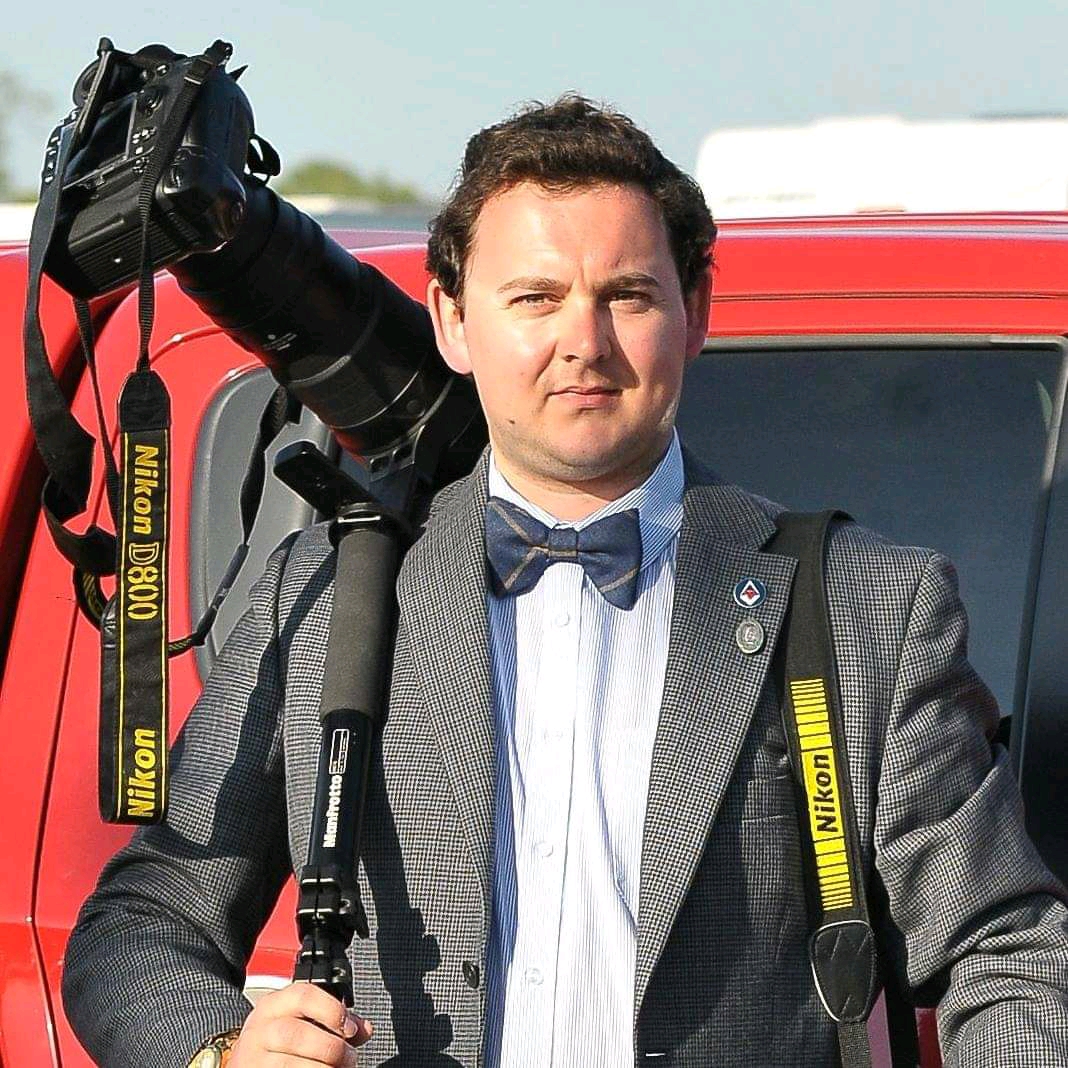
For nearly two decades Sebastian's work has been published internationally. Originally specializing in Equestrianism, his visuals have been used by the leading names in the equestrian industry such as The Fédération Equestre Internationale (FEI), The Jockey Club, Horse & Hound, and many more for various advertising campaigns, books, and pre/post-event highlights.
He is a Fellow of the Royal Society of Arts, holds a Foundation Degree in Equitation Science, and holds a Master of Arts in Publishing. He is a member of Nikon NPS and has been a Nikon user since his film days using a Nikon F5. He saw the digital transition with Nikon's D series cameras and is still, to this day, the youngest member to be elected into BEWA, the British Equestrian Writers' Association.
He is familiar with and shows great interest in 35mm, medium, and large-format photography, using products by Leica, Phase One, Hasselblad, Alpa, and Sinar. Sebastian has also used many cinema cameras from Sony, RED, ARRI, and everything in between. He now spends his spare time using his trusted Leica M-E or Leica M2, shooting Street/Documentary photography as he sees it, usually in Black and White.
